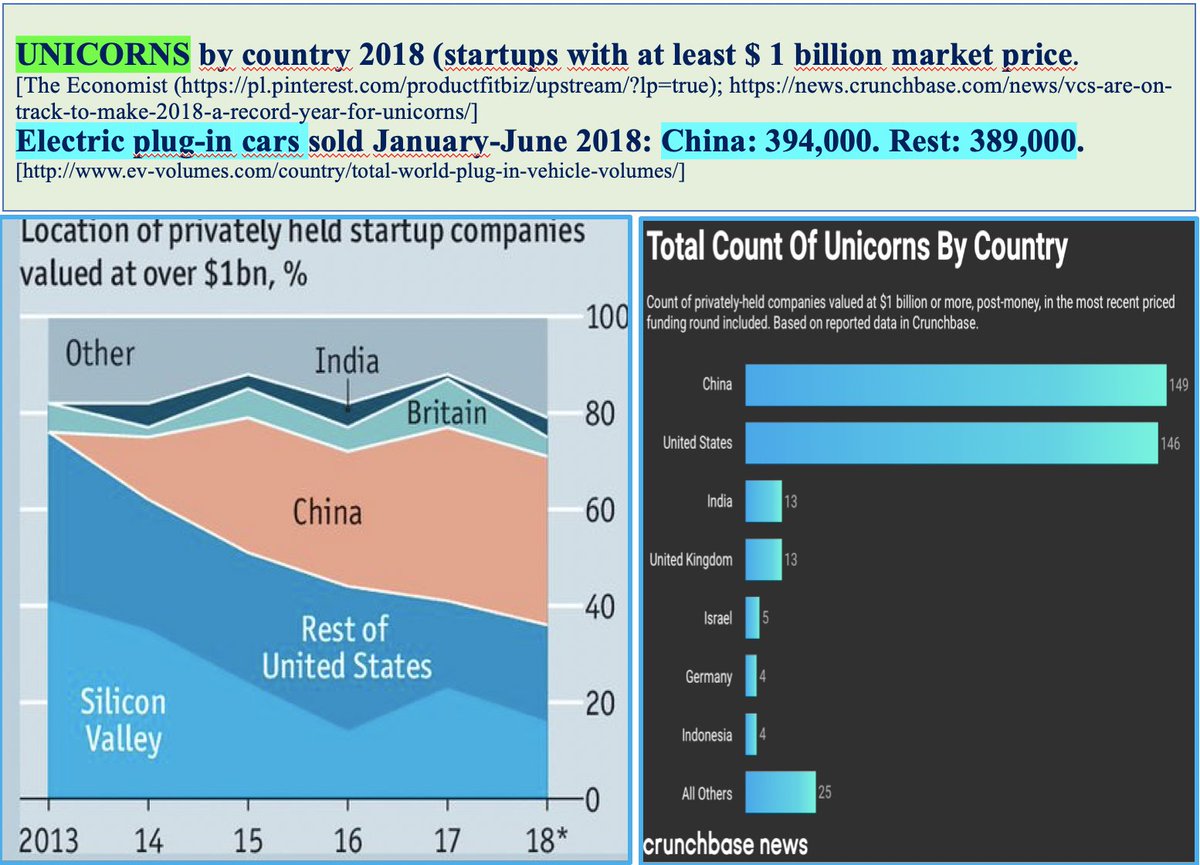If you want to gauge China's potential, look at Singapore. Singapore is essentially a 278 times smaller version of mainland China but with a significant headstart. A Singapore with 1.4 billion people might already have been the world power by now.
This actually underestimates China's potential. The larger a country is, the easier it becomes to conduct large-scale scientific and technological projects. For example, a country like Iceland could never launch its own Manhattan Project, which employed more than 130,000 people.
Former Google CEO Eric Schmidt: "China will pretty much be running things from now on...it has more artificial intelligence patents, and is streets ahead in implementing cutting-edge developments." https://www.forbes.com/sites/enriquedans/2020/08/27/has-china-has-already-won-youbet/#50647dc3377f
Apple's Tim Cook says that “In the U.S., you could have a meeting of tooling engineers, and I'm not sure we could fill the room. In China, you could fill multiple football fields.”
Silicon Valley executives visiting and exploring China's tech sector found that Chinese technology executives were even more driven and more willing to do whatever it takes to win. Everything seemed to be moving at an extraordinary speed. https://www.nytimes.com/2018/11/05/business/china-silicon-valley-technology.html
❝China has already achieved parity with—or even exceeded—the United States in several military modernization areas...❞ -- Annual Report to Congress: Military and Security Developments Involving the People's Republic of China. https://media.defense.gov/2020/Sep/01/2002488689/-1/-1/1/2020-DOD-CHINA-MILITARY-POWER-REPORT-FINAL.PDF
Two graphics that put China's human capital into perspective: https://think-beyondtheobvious.com/china-ist-unschlagbar/
1. Number of math top scorers by country.
2. Total count of unicorns by country.
1. Number of math top scorers by country.
2. Total count of unicorns by country.
China now owns the top share of scientific papers at 19.9%, while the U.S. comes in second at 18.3%. These statistics are based on the number of peer-reviewed papers published in scientific journals. https://asia.nikkei.com/Business/Science/China-passes-US-as-world-s-top-researcher-showing-its-R-D-might
The Fortune Global 500 is now more Chinese than American https://fortune.com/2020/08/10/fortune-global-500-china-rise-ceo-daily/
Some claim that the Chinese lack the necessary individualistic curiosity to be innovative. Yet 21st-century science and technology are increasingly about large collaborations of many smart individuals and big data rather than individualistic geniuses working alone.
Another advantage China has is that it isn't as concerned about ethical implications as the West.
Although this claim sounds a little bit crazy if anyone is able and willing to do it then it's China. https://www.nbcnews.com/politics/national-security/china-has-done-human-testing-create-biologically-enhanced-super-soldiers-n1249914
Although this claim sounds a little bit crazy if anyone is able and willing to do it then it's China. https://www.nbcnews.com/politics/national-security/china-has-done-human-testing-create-biologically-enhanced-super-soldiers-n1249914
While the West is advertising the alledged benefits of ethnic diversity, Chinese software engineers managed to dominate the African smartphone market by paying attention to African consumers and tailoring flashes and imaging software for darker skin tones. https://restofworld.org/2020/transsion-from-china-to-africa/
Another example is the TikTok algorithm: "Few among the team of engineers who built it have ever lived outside of China. But in just three years, the app has swept up 1 billion users across 154 countries..." https://www.lowyinstitute.org/the-interpreter/unique-power-tiktok-s-algorithm

 Read on Twitter
Read on Twitter



